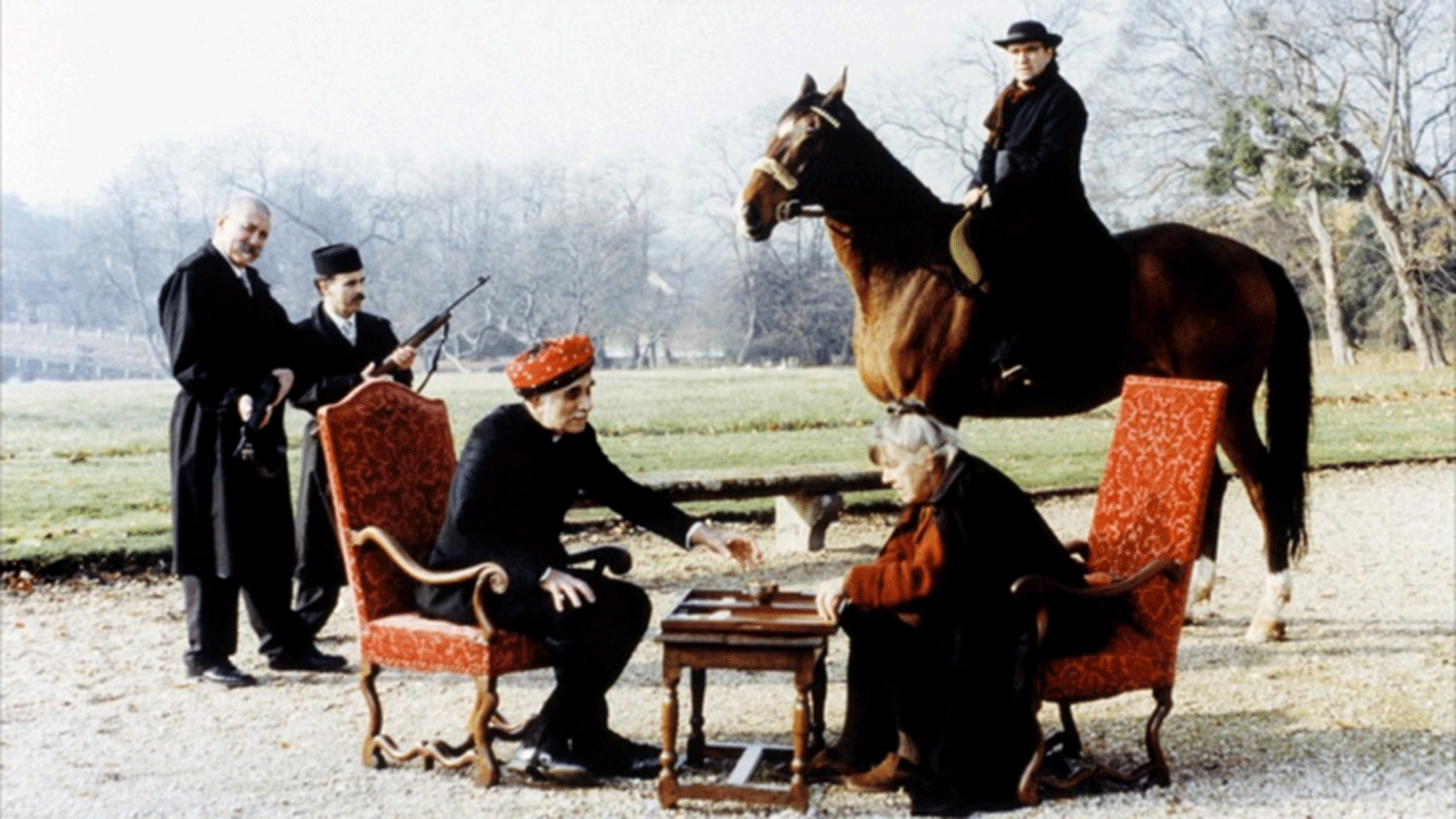
Two older women, of aristocratic descent, live isolated in a once-grand, now-decaying chateau, located in a small French village. Listening to the radio all day long they hear echo of the outside world, plagued with catastrophes and chaos. They survive financially by the occasional sale of a piece of antique furniture and they purposely ignore real estate development interests from the nearby town. When one of them dies suddenly, an heir from Moscow, real estate vultures and a Japanese investment group descend upon the chateau. In this bitter-sweet satire, Iosseliani engages with the decline of aristocracy and the onset of the era of greed.
Otar Iosseliani
Otar Iosseliani was born in 1934 in Tbilisi, Georgia, where he studied music composition, conducting and piano. In 1953 he went to Moscow to study mathematics, but in two years he quit and entered the State Film Institute where his teacher was among others, Alexander Dovzhenko. While still a student in film direction, he began working in Tbilisi, first as an assistant director and then as an editor of documentaries. When his medium-length film “Aprili” (1961) was denied theatrical distribution, Iosseliani abandoned filmmaking and in 1963-1965 worked first as a sailor on a fishing boat and then at a metallurgical factory. When his 1976 film “Pastorali"" was shelved for a few years and then granted only a limited distribution, Iosseliani grew skeptical about getting any artistic freedom in his homeland. In 1984 he moved to France where he made “Favorites Of The Moon”. The film was distinguished with a Special Jury Prize at the Venice Film Festival. His films have been presented in major film festivals and have won major prizes.


